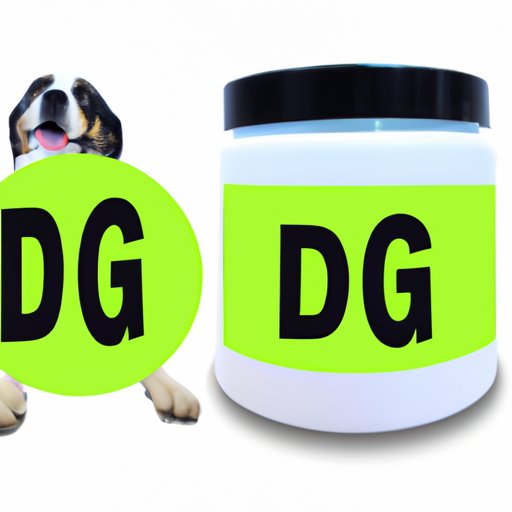
Introduction
Just like humans, some dogs struggle with maintaining a healthy weight. It can be worrying when our furry family members drop weight or seem to have trouble gaining it back. If you’re concerned about your dog’s weight, it’s natural to wonder what you can do to help. Fortunately, there are many things you can do to encourage your dog to put on those extra pounds. This article will outline some common reasons why dogs may struggle with weight gain and offer some tips for helping your pup put on some extra weight in a healthy and sustainable way.
Why is Your Dog Not Gaining Weight?
There are many reasons why your pup may be struggling to gain weight. Some dogs may have a fast metabolism, which means they burn more calories throughout the day than they take in. Others may not be getting enough calories in their diet, either because they’re not eating enough food or their food doesn’t contain enough nutrients. In some cases, weight loss or difficulty putting on weight can also be a sign of an underlying medical condition, such as thyroid issues or cancer. If you’re concerned about your dog’s weight, it’s important to consult with your veterinarian to help determine the underlying cause of the problem.
How to Help Your Dog Gain Weight
If your veterinarian has ruled out any major health concerns, there are plenty of things you can do at home to help your dog gain weight. Here are six tips that can help:
Dietary Changes to Promote Weight Gain
One easy way to help your dog gain weight is by making some changes to their diet. If you’re feeding your dog once a day, consider increasing their meals to two or three smaller meals throughout the day. This can help your dog consume more calories throughout the day, making it easier to put on weight. Additionally, consider switching to a higher calorie food that contains more protein and fat than what your dog is currently eating. Nutrient-rich supplements such as fish oil, omega-3, and vitamin E can also be added to their diet.
Tasty Treats to Help with Weight Gain
Many dogs love treats and incorporating high-calorie treats into their diet can be an easy way to give them those extra calories they need to gain some weight. Additionally, high-calorie training treats can be a great option for helping your pup pack on the pounds while also encouraging good behavior. However, try to achieve a balance between meals and treats to ensure their overall caloric intake is accurate.
Exercise to Promote Weight Gain
While exercise may seem counterintuitive to weight gain, it can actually help your pup build muscle and increase appetite. Keep in mind that not all exercise is physical; mental stimulation also promotes a healthy weight. Start with small exercises that your dog can handle and slowly build from there. This helps build up stamina and strength, while boosting metabolism and promoting a healthy appetite.
Medical Conditions as a Cause of Weight Loss
If you are struggling to help your dog gain weight despite changes to their diet and activity level, it may be necessary to see the vet. There are many medical conditions that can cause weight loss in dogs, including cancer and thyroid problems. A thorough examination can help rule out any underlying medical issues that may be preventing weight gain.
Trying Different Diets to Find the Right Fit
If your dog is a picky eater, it may be challenging to find a diet that they like and is beneficial for weight gain. To help overcome this, try different brands and flavors until you find the right combination. Variety will also ensure they do not get bored of the same food. A diet that your dog enjoys will promote healthy weight gain.
Avoiding Table Scraps
As tempting as it may be, avoid giving your dog table scraps. While human food might taste good, it is not always nutritionally balanced for our canine friends. This means it may not provide them with the proper nutrients they need to maintain a healthy weight. In addition to that, table scraps can lead to obesity and other health problems if given in excess.
Conclusion
Helping your dog gain weight can take some time and patience, but by taking a multi-faceted approach, you can see some results in a few months. By changing their diet, adding extra treats, and providing regular exercise, you can improve their health while giving them the nutrition they need to thrive. Remember, if you are concerned about your dog’s weight, it is essential to schedule a vet check-up to rule out any medical concerns and develop the best plan of action for your furry friend.





